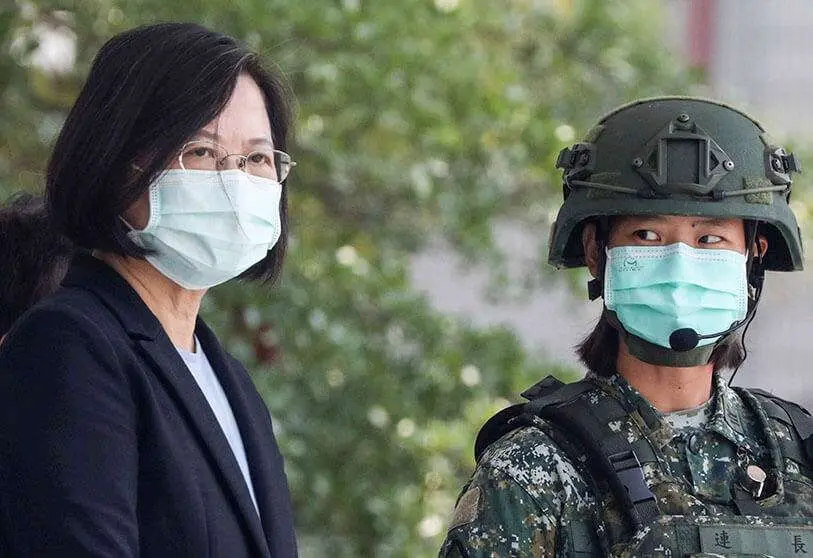Taiwan at the crossroads

One of the angles from which it is illuminating to observe the development of the situation around Taiwan has a lot to do with the part of geography that studies the water cycle. On the one hand, because although the contentious island is one of the wettest places in the world, thanks to a subtropical climate that is conducive to both typhoons and monsoons, since last year Taiwan has suffered its most severe drought in almost 60 years, which led to its reservoir capacity dropping to an average of 20% at its most critical point, with some of the reservoirs having only 7% reserves.
The damage to the agri-food industry has been considerable, especially to tea crops. However, the most serious economic damage inflicted by the lack of rain has been suffered by the semiconductor-based microchip industry, of which, as is well known, Taiwan is the main international supplier, manufacturing 90% of the world's production. This production consumes huge quantities of water, the lack of which has compromised global supplies to such an extent that the Taiwanese government was forced to divert water resources intended for irrigating some 80,000 hectares of farmland to the electronics industry, while imposing restrictions on urban consumption and limitations on the use of water in the service sector.
The dramatic debut of these problems has brought home to Taiwan's leaders the fragility of its economic system in the face of what clearly appears to be a trend of climate change-induced high pressures in the Indo-Pacific, particularly affecting the Hsinchu region, home to most semiconductor manufacturers. Not being left to the weather as a sensible industrial strategy, the Taiwanese government has started to look for alternatives, ranging from better water recycling, to the creation of hydrological infrastructure to transfer water from regions with more water resources, and the construction of more seawater desalination plants. Most of these facilities are located on outlying islands, with only three on the main island of Taiwan. The last of these, located in Hsinchu, is capable of generating 13 million litres per day, just 7% of the water consumption of the industrial park where it produces most of the semiconductors.
Increasing desalination capacity to guarantee current water consumption levels and allow for the growth of this and other industries comes up against Taiwan's limitations in terms of energy autonomy: crude oil imports currently account for 48.28% of total energy consumption, followed by coal at 29.38%, natural gas at 15.18%, and 5.38% from the energy produced by its 8 nuclear reactors.
Given Beijing's well-known aspiration to reunify the two Chinas, an excessive dependence on hydrocarbon imports, in addition to its other dependencies (21% of its imports come from China, to which Taiwan exports 38%), would make the island extremely vulnerable to a naval blockade of the Taiwan Strait, which would save China the costs of a World War II-style landing in the neighbourhood.
This being the case, the only feasible option on paper is the expansion of the nuclear fleet. However, the atomic alternative would open a Pandora's Box of unpredictable consequences, which is why this option is unlikely to meet with Washington's backing, and would be opposed not only by Beijing but also by Moscow. It is easy to understand why, given the potential dual use of atomic technology, and the precarious balances on which the Nuclear Non-Proliferation Treaty stands, which the recent AUKUS initiative has done nothing to improve.
In this case, its own history works against Taipei: in the 1980s, Taiwan halted in its tracks an accelerated programme to develop a viable nuclear weapon after a Taiwanese military scientist, Colonel Chang Hsien-yi, defected to the United States after he informed the CIA in detail about the status of the Taiwanese military's secret plutonium production programme.
Taiwan thus finds itself between Scylla and Charybdis; with no good options before it, and aware that its geopolitical influence, and therefore its economic muscle, is conditional on maintaining a leading position in the advanced electronics sector, something that seems very difficult if you are up against the elements and under the threatening gaze of big brother.

